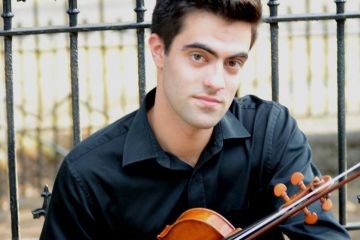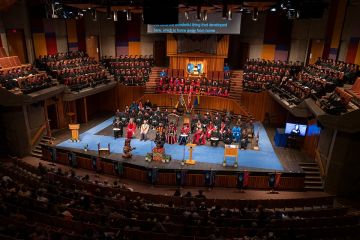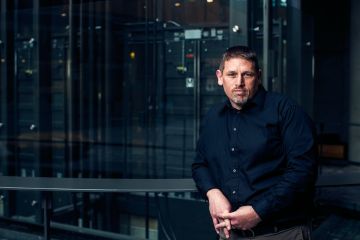The Science of Sound
- John Threlfall

If you tweak it, they will come. That was the thinking behind the creation of the combined Music and Computer Science degree program five years ago. "I've taught courses in music technology since I came to UVic in 1990," says program co-creator Andrew Schloss. "We used to get emails asking, 'Is there any way I can study music technology?' and I'd have to say, 'Not exactly—you could take these courses in music and these courses in engineering,' and so on. We created this program because we saw a need, and it's been a smashing success."
Originally created by Schloss—who specializes in computer research in music and acoustics—and electrical and computer engineering professor Peter Driessen, the teaching faculty has doubled since 2006, thanks to the addition of audio engineer Kirk McNally and musician and computer scientist George Tzanetakis. Now boasting 40 students, it's clear the program was ahead of its time. "At first, people just didn't get it—it was outside their experience," recalls Schloss. "We worked really hard to convince everyone—including our colleagues—that we should do this; now everybody uses iPods and iPhones, everyone looks up songs on the web, so everybody understands."
No surprise there. Once the sole interest of tech geeks and audio cliques, the digital revolution forever changed how the two fields relate. From recording technology and computerized instruments to creating audio for video games and platforms for delivery, music and computers have now been irrevocably fused. "All music is in the clouds," says Schloss. "There's tremendous effort being made to figure out how to access it, transmit it and create it. Computer science and music are one of the most natural combinations."
Schloss should know. As a percussionist and electronic musician, he's a virtuoso on an instrument called the radiodrum and has played alongside the famed likes of Ricki Lee Jones, Joe Jackson, Tito Puente and Hilario Durán, as well as sound pioneers Trimpin and Leon Theremin. Schloss also received a SSHRC Research/Creation Grant in Fine Arts (along with Driessen and Tzanetakis) in 2011, and is one of the scientists featured in BC's Year of Science initiative.
"There are so many young people now who love music, and this is a highly employable area," says Schloss, noting the proliferation of smart phones has also increased employment options. "Telephony, data, speech and music are all mixed up now, so there's a need for people to do all kinds of things with speech. This program allows people who love music to actually study something that will lead them to good and interesting employment."
But it's not just about music. Schloss notes the importance of sound in video games ("The more sophisticated games get, the more they want high-quality audio—and that even includes things like reverberation inside caves, for example") and how Tzanetakis' own research into music information retrieval can not only be used for search-and-discovery music apps like SoundHound, but also for more surprising bioacoustic applications. "Using the machine-learning techniques that George teaches, we have several students working on finding and identifying whale songs, which is kind of cool. So, beyond music, there are a lot of things that are scientific and creative."
One of the most interesting of all the various computer science initiatives on campus right now, the combined Music and Computer Science program has a promising future, says Schloss. “It's a pretty big now, and it's getting more popular. We're turning people away.”





